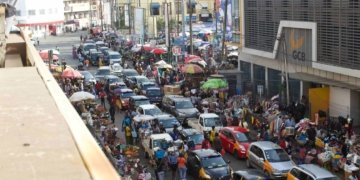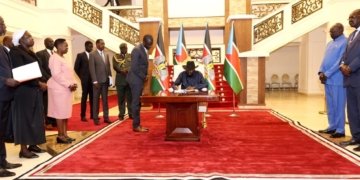NAIROBI, Kenya (BG) – A new report by the United Nations Development Programme (UNDP) highlights the transformative potential of regional integration in addressing complex human development challenges in the Horn of Africa.
The 2024 Regional Human Development Report, titled “Enhancing Prospects for Human Development through Regional Integration,” underscores the need for robust cooperation to foster socio-economic progress, improve governance, and boost resilience to crises.
The Horn of Africa, comprising Djibouti, Eritrea, Ethiopia, Kenya, Somalia, South Sudan, Sudan, and Uganda, is among the world’s most vulnerable regions due to its susceptibility to conflicts, climate shocks, and limited socio-economic opportunities.
Despite these challenges, the report outlines untapped opportunities for sustainable growth through regional trade, collaborative resource management, and stronger governance systems.
Key Findings and Recommendations
Trade Integration: Intra-regional trade among Horn of Africa countries remains minimal, accounting for only 12% of total exports and 6% of imports in 2022. The report advocates leveraging the African Continental Free Trade Area (AfCFTA) to eliminate tariffs and non-tariff barriers, projecting GDP growth of 3.9% and the creation of one million jobs by 2030 if trade reforms are implemented.
Water-Energy-Food Nexus: With shared river basins and high dependence on agriculture, the report emphasizes regional collaboration in managing water, energy, and food resources. Such efforts are crucial for mitigating the effects of climate change, which has led to severe droughts and food insecurity, impacting millions across the region.
Governance and Peacebuilding: The report identifies inclusive governance as a cornerstone for stability and development. Strengthening institutions, promoting peace, and ensuring equitable resource distribution are critical for addressing long-standing political and social vulnerabilities.
The Path Forward
The report calls for bold, collaborative strategies supported by international partners to tackle the Horn of Africa’s systemic challenges.
Investments in infrastructure, such as the Lamu Port-Southern Sudan-Ethiopia Transport Corridor (LAPSSET) and Eastern Africa Power Pool, are highlighted as initiatives that could drive regional integration and resilience.
According to the report, unlocking the Horn of Africa’s potential requires shifting from crisis management to proactive, cooperative development, transforming shared vulnerabilities into opportunities.



















